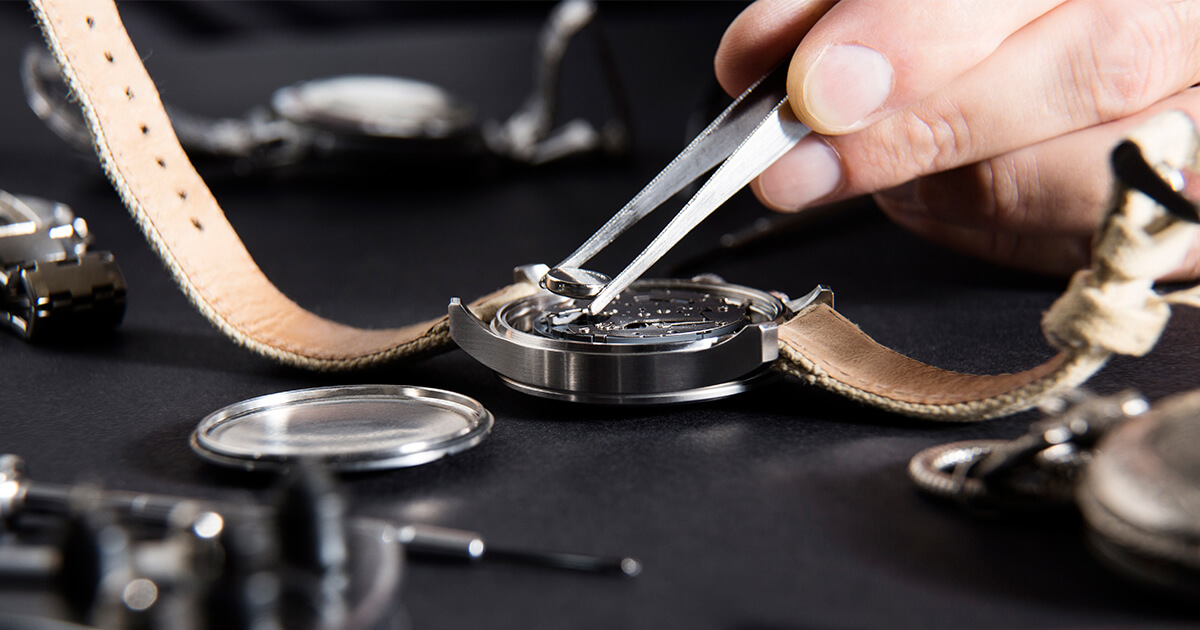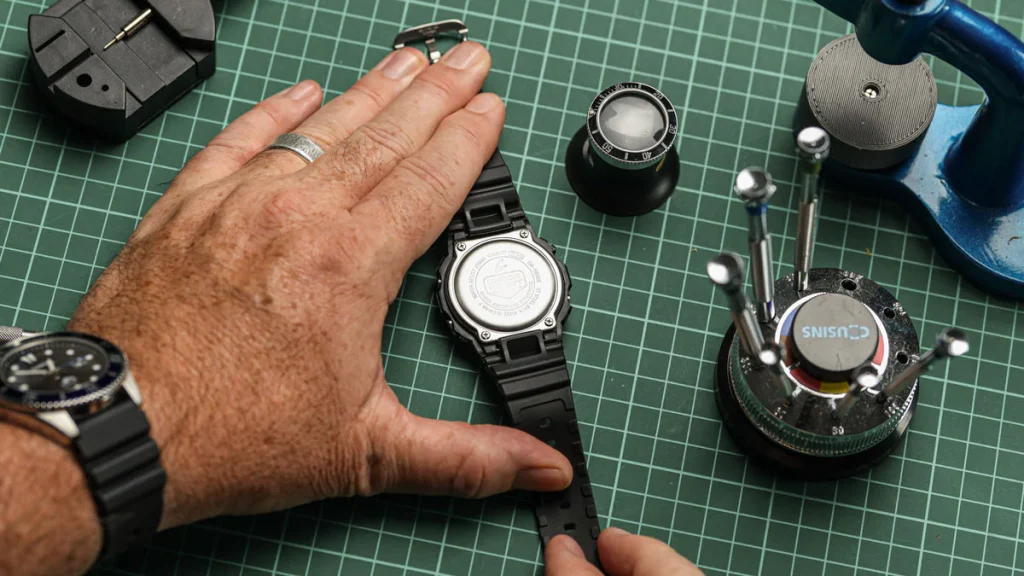Owning a watch, whether it’s a treasured heirloom or a modern luxury timepiece, requires proper care and maintenance to ensure it stays in good working condition. Routine maintenance can help prevent costly repairs and prolong the life of your watch. This comprehensive guide outlines the steps you can take to repair and maintain your watch at home and when to seek professional assistance.
1. Regular Cleaning and Inspection
Why It Matters: Dirt, dust, and grime can accumulate on the watch’s surface, in the crevices of the bracelet, and even within the watch mechanism over time. Regular cleaning ensures that your watch stays looking good and functioning properly.
How to Do It:
- Wipe the Surface: Use a soft, lint-free cloth to gently wipe the case, dial, and band. For more thorough cleaning, use a microfiber cloth and a mild soap and water solution.
- Brush the Band: For metal bracelets, use a soft brush or an old toothbrush with water and soap to clean between the links.
- Be Cautious with Water: If your watch is not water-resistant, avoid submerging it in water. If it is water-resistant, be sure to follow the manufacturer’s instructions regarding water depth and exposure.
2. Check and Replace the Battery
Why It Matters: Dead batteries are one of the most common issues for quartz watches. Keeping your watch battery in good condition ensures it continues to keep time accurately.
How to Do It:
- Check the Battery Life: If your watch stops working, it could be due to a dead battery. Most watch batteries last between 1-3 years, depending on the type and usage.
- Replace It Carefully: You can replace the battery yourself with a small screwdriver to open the back case or take it to a professional watchmaker for replacement. Always use the right type of battery specified by the manufacturer.
- Seal the Case: When changing the battery, ensure the back case is sealed tightly to maintain water resistance.
3. Adjusting the Watch Movement

Why It Matters: If your watch runs too fast or too slow, it could affect your timekeeping accuracy. Regular adjustments can prevent minor errors from becoming significant issues.
How to Do It:
- Manual Winding: For mechanical watches, wind the crown to power the mainspring. Wind gently until you feel resistance, and never force it.
- Setting the Time: Pull out the crown to the correct position and turn it to set the time. Be cautious not to adjust the time backward, as this could damage the internal mechanism, especially in older models.
- Accuracy Check: Use a timekeeping app or a time reference to check if your watch is running accurately. Adjust as necessary according to the manufacturer’s guidelines.
4. Lubrication and Maintenance of Internal Components
Why It Matters: Watches have small, intricate parts that require lubrication to function smoothly. Lack of lubrication can lead to wear and tear and potential damage to the movement.
How to Do It:
- Frequency: For automatic or mechanical watches, consider servicing every 3-5 years to ensure that all components are lubricated properly.
- Professional Servicing: If you’re not trained in watch maintenance, it’s best to leave this to a professional. Watchmakers have the tools and expertise needed to take apart the movement, clean, lubricate, and reassemble the parts.
5. Watch Band Care

Why It Matters: Your watch band is exposed to sweat, dirt, and oils from your skin, which can affect its longevity and appearance.
How to Do It:
- Leather Bands: Use a leather cleaner or conditioner to keep the band supple. Avoid getting leather wet, as moisture can damage it over time.
- Metal Bands: Clean metal bands using a mild soap solution and a soft brush. For more thorough cleaning, use a specialized metal polish.
- Replace When Necessary: If the band shows significant signs of wear, consider replacing it to maintain the aesthetics and functionality of the watch.
6. Protect Your Watch from External Damage
Why It Matters: Watches can be susceptible to scratches, impacts, and environmental factors that can affect their appearance and internal mechanics.
How to Do It:
- Avoid Exposure to Strong Magnets: Magnets can affect the accuracy of the movement, particularly in mechanical watches.
- Store Properly: When not in use, store your watch in a watch box or a soft, padded case to prevent scratches and impacts.
- Protect from Sunlight and Chemicals: Direct sunlight and harsh chemicals can damage the dial and the materials of the watch. Store your watch in a cool, dry place and avoid exposure to perfumes and cleaning agents.
7. When to Seek Professional Help
While many watch maintenance tasks can be done at home, some situations require a professional watchmaker or technician:
- Complex Repairs: If your watch has issues with its movement or internal parts that require expertise, it’s best to seek a professional.
- Water Resistance Check: If your watch has been exposed to water and you’re unsure if it’s still water-resistant, it’s wise to have it pressure-tested by a professional.
- Vintage or High-Value Watches: Older or more valuable timepieces should be handled by specialists to preserve their value and functionality.
8. Keep Your Watch Away from Extreme Temperatures Exposure to extreme temperatures can cause damage to the watch’s internal components and can affect the accuracy of timekeeping. Try to avoid wearing your watch in environments that are too hot or too cold, and never leave your watch in direct sunlight for long periods. If you’re going on an outdoor adventure or working in challenging environments, ensure that your watch is equipped with the appropriate weather resistance.
9. Regularly Check the Seals and Gaskets Watches designed to be water-resistant have seals and gaskets that prevent water from entering the case. Over time, these components can degrade, especially if your watch is regularly exposed to moisture. It’s important to have the seals checked and replaced during your regular watch servicing to ensure the watch maintains its water resistance.
10. Use a Watch Winder for Automatic Watches If you own an automatic watch, using a watch winder can be an excellent way to keep it running when not in use. A watch winder is a device that keeps your automatic watch ticking by simulating wrist movements. This is especially useful if you have multiple watches and rotate their use, as it prevents the lubricants inside the movement from settling and helps maintain the timekeeping accuracy.
Conclusion
Proper watch maintenance is essential for keeping your timepiece looking and functioning at its best. Regular cleaning, battery checks, and occasional servicing can extend the life of your watch and maintain its accuracy. For more complex tasks, don’t hesitate to seek the help of a professional. By following these steps and taking good care of your watch, you can enjoy its precision and beauty for years to come.


